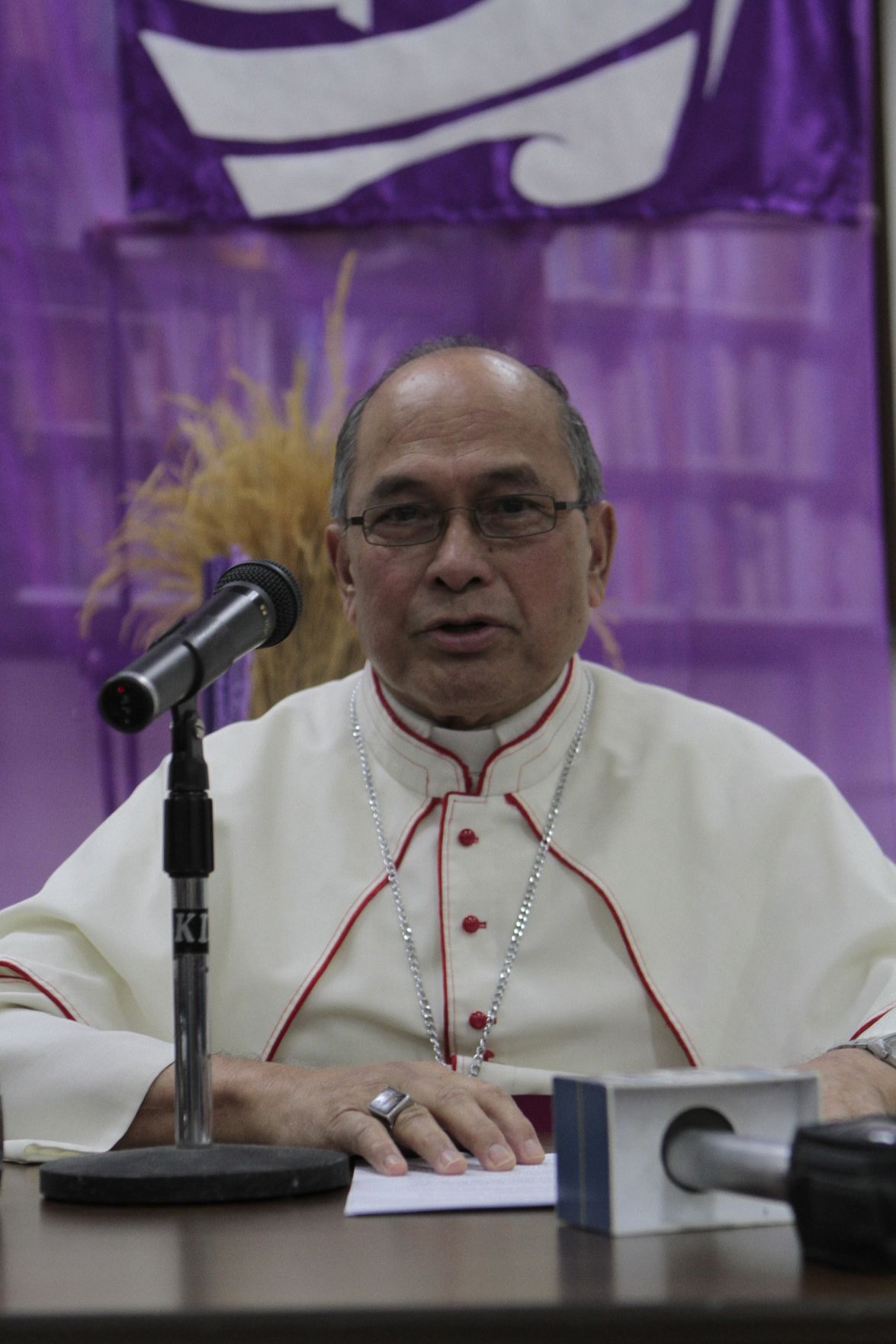A canon law expert said confidential documents obtained by the Post, which summon one of Archbishop Anthony Apuron’s accusers to appear before a Vatican-sent tribunal, are the first pieces of evidence that Apuron faces the church’s version of a criminal case, rather than an administrative proceeding.
CONTINUED

"confidential documents obtained by the Post"? is there a mini-vatileaks going on? or are they referring to the summons documents shared by david lujan?
ReplyDeleteMr. Wall is wrong, in that the criminal statute of limitations had long since expired.
ReplyDeleteAlso, I suspect not every case brought to the Congregation of the Doctrine of Faith in 2008 would necessarily involve complaints of child sexual abuse.
Wrong, CNMI Lawyer. Patrick Wall knows what he's talking about. He has worked with America's biggest clergy victims Superlawyer for years. Plaintiff attorney Jeff Anderson in Minnesota has probably won more jumbo abuse cases against the Catholic Church than anyone.
ReplyDeleteThose were civil cases.
DeleteTo get a criminal conviction and imprisonment, there would have to be much more recent instances of abuse than have been publicly reported.
Even experts are not omniscient or infallible.
Although my comment was submtted after that of Rose de los Reyes, hers was not yet visible when I did so.
DeleteI agree that a reference to “ecclesiastical crime” by Mr. Wall would fit the context. It also occurred to me that there may have been some inaccuracies in reporting or quotations.
It is very important that readers and commenters (and reporters) remain mindful of the difference between the secular criminal justice / penal system and its canon law counterpart within the Catholic Church.
Do not conflate the two.
CNMI Lawyer, given the multi-millions Jeff Anderson's cases paid both the abuse victims and him, it doesn't matter that they were civil instead of criminal actions.
DeleteA great measure of Justice was served.
If the victims are unable to sue their abusers within time limits specified by statutes of limitations, they have no expectations of criminal prosecution. The vast majority of them are satisfied with their jumbo civil settlements. Most of them made out of Court.
To CNMI Lawyer, I understand Mr. Wall as speaking of “ecclesiastical crime” as opposed to "crime" in the context of the U.S. penal code system.
ReplyDeleteIn 2010, the Italian Bishops' Conference newspaper published an interview with the Holy See's Promoter of Justice [prosecutor] at the Congregation of the Doctrine of the Faith, Msgr. Charles J. Scicluna. He was asked about the statutes of limitations in canon law governing sexual abuse by clergy. Msgr. Scicluna answered that statutes of limitations had been "unknown in canon law." But, he added, in 2001 a statute of limitations for these ecclesiastical crimes was set at age 18 plus ten years. Therefore, he noted, the ecclesiastical courts gave victims until age 28 to file charges in the Church's system. Msgr. Scicluna then said that the courts had learned that "the limit of ten years is not enough in this kind of case, in which it would be better to return to the earlier system of delicta graviora [more serious offenses] not being subject to the statute of limitations." He concluded that in 2002, Pope John Paul II gave his office the power to "revoke" the statute of limitations in child sex abuse cases, and he has done so. In other words, Msgr. Scicluna suggested, on behalf of the Holy See, that when it comes to clergy child sex abuse, no statute of limitations is the better path and any such limit should be abolished. With Guam's P.L. 33-187, Guam's civil law is in tandem with the Holy See's criminal law re sexual abuse by clergy.
Rose and Patrick are right about ecclesiastical v. civil crime.
DeleteApuron's white collar crimes involving RMS and embezzlement can't be combined with the abuse/personal injury cases in civil Courts. I don't know if it can be done in secret canonical tribunals because outsiders will never know how canon law is misused there.
My hope is that tribunal's investigation is not exclusive to the sexual abuse allegations against Abp. Apuron but will include other ecclesiastical crimes such as inserting language in the deed of the Yona property for the perpetual use of the RMS/NCW. Abp. Hon said in Aug/Sept 2016 that such a transaction was effected without due process in conformity with church law and it was known to the Holy See in 2015. The pope instructed Abp. Apuron more than once to rescind and annul it but Apuron never did --- to this day! Also misappropriation of Church funds (or whatever they call that in canon law) where Abp. Apuron failed to submit annual financial reports to the CEPAC nuncio.
ReplyDelete